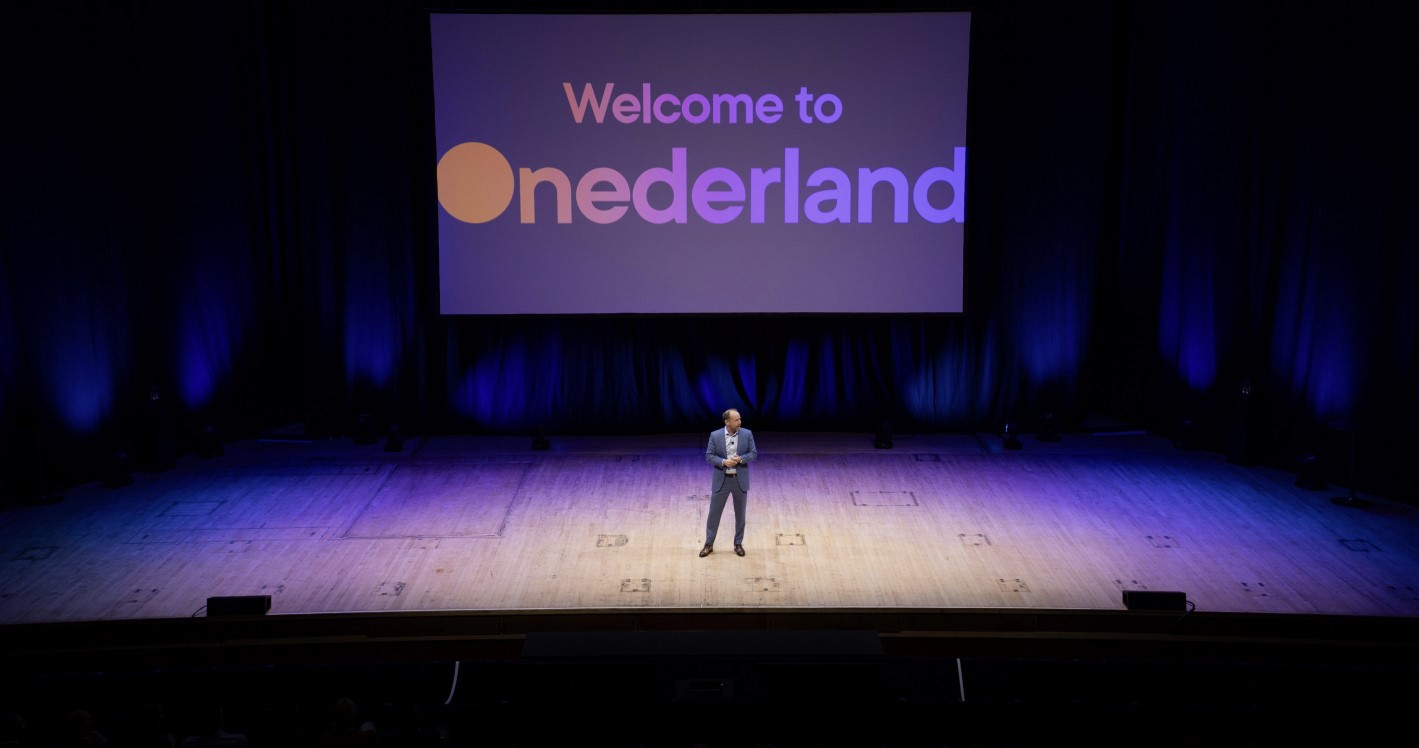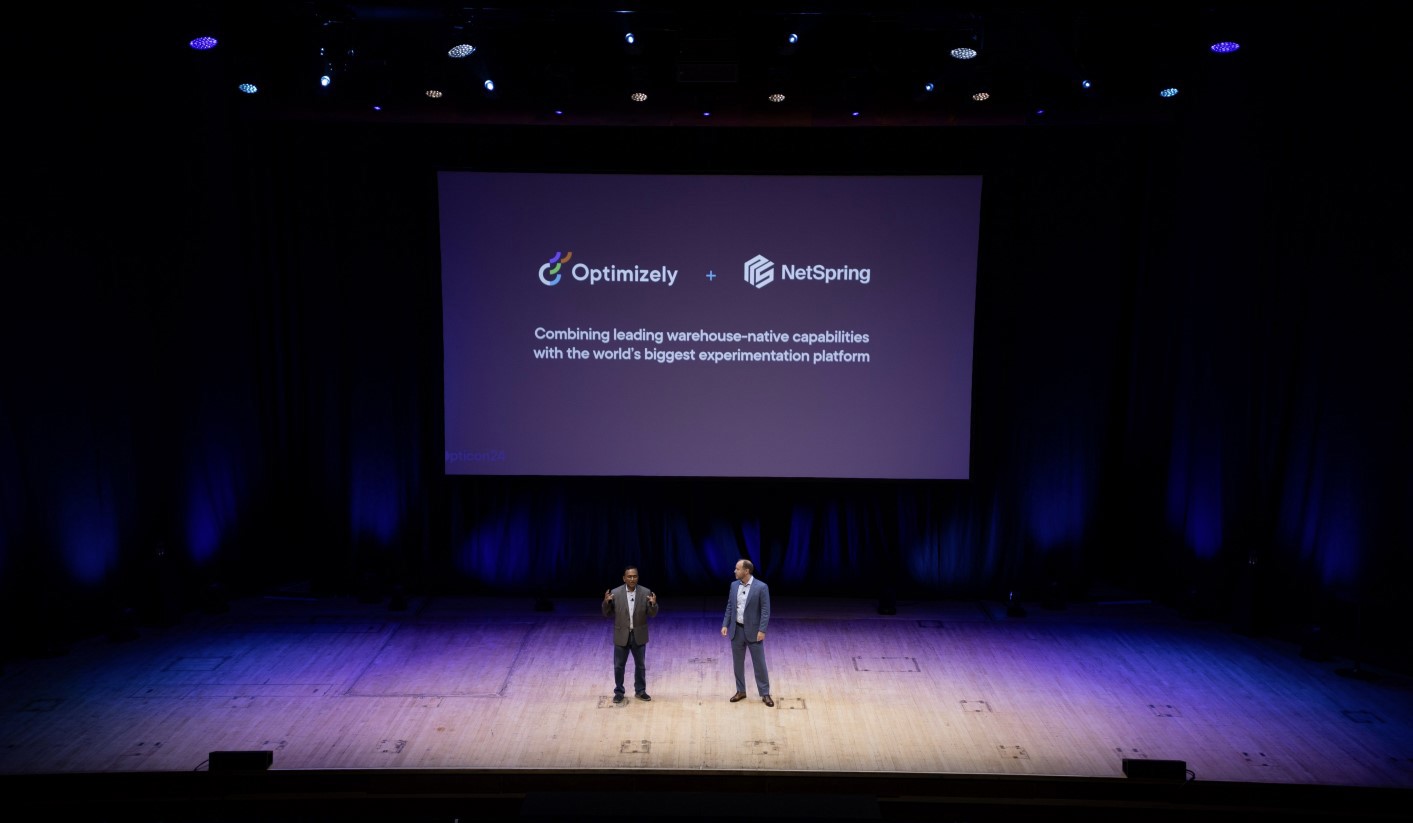Opticon 2024 - What I took home
Account Director, Saskia Jury, shares her experience of attending Opticon 2024.

What I learnt at Opticon London 2024
Last week I attended Opticon for the first time in London, a great opportunity to connect with other marketers and hear from the best-of-the-best digital marketing teams leveraging Optimizely and its various solutions to impressive effect.
The day was jam-packed with talks showcasing case studies, industry leaders and think-pieces from various Optimizely partners, and I focussed on attending talks that offered practical advice on how to start, implement and scale execution of digital marketing tactics such as personalisation and experimentation.
Many of my clients are still at the point of dipping their toes into these areas and as such I wanted to focus on how I can best support in building an effective business case, the results that can be expected, and how to successfully implement processes and scale effectively.
I’ve summarised some of the key takeouts from the day:
“Optimizely is built for marketers”.
This sounds obvious, but a refreshing reminder that Optimizely’s core business model centers around marketers and how to make their roles easier, and more fun. When discussing the role AI would play in the platform and new features being added over time, it was obvious that Optimizely don’t plan on automating the fun stuff, but rather automating and scaling the ‘boring bits’ of a marketer’s role so they can focus on adding value. Optimizely’s own AI – Optimizely Opal works across the Optimizely One product suite to help with ‘boring’ admin tasks such as image tagging, product descriptions, summarising customer sentiment, generating new variants for experiments, and so much more.

The brief is ‘everything’.
“A brief is not a vending machine – you don’t just drop in a few coins and expect something perfect to drop out. If it’s worth doing, it’s worth briefing properly”.
One really key reminder for me, and this should be obvious: the brief truly is everything. Across the day the concept of a strong brief came up in many formats.
As an example, during Madison Hajeb’s (Senior Director, Testing and Innovation at Tapestry) talk about experimentation, she mentioned a core part of her process is a Test Intake Form. This essential briefing tool:
• collated all the valuable and vital information to formulate an experiment from; less chasing, less Q&A, more doing.
• provided a format for her testing team to push back, validate the brief, tie it properly into their strategy and prevent HiPPO effects from the business.
• created a clear process for her team to prioritise tests and build a roadmap of activity across the year.
• allowed everyone within the business to feed into testing and experimentation, creating a culture that could see value and share success in experimentation.
o Madison mentioned that one of the most successful tests ever created for Tapesty came from a completely different, and unlikely, department within the business.
"The median company runs 34 experiments a year”.
If you’re serious about experimentation, it needs to start somewhere. Anywhere. And then scale. Many talks at Opticon centered around the common issue; experimentation starts as a small, infrequent and sometimes uninspiring programme of work. There’s a lot of pushback, questions and scepticism if your company culture is not already set up to fully back experimentation as a concept.
A lack of positive results can be seen as failure rather than a chance to learn. But if you stick with it, there’s the opportunity to build momentum and optimise the process to create a lot of reward. Some top tips to scale out experimentation programmes included:
- Involving developers into your programme to code larger changes that impact the customer more significantly, providing bigger potential reward (beyond simpler copy, colour or content ordering tests).
- Running more tests concurrently and being flexible in your statistical significance levels (being mathematically ‘Pure’ is not as vital as producing business value).
- Testing a higher number of variations concurrently (i.e. moving beyond A/B tests).
- Leverage experimentation to incorporate a personalisation strategy; use tests to try out personalisation tactics and measure their effect before committing to a complex personalisation implementation.
Optimizely Web and Feature Experimentation offer multi-armed bandit algorithms; which allow you to test multiple variations at the same time, whilst gradually moving traffic towards winning variations to achieve the test goal, instead of forcing you to wait for an experiment to end to learn the result. This process maximises reward by getting to a positive outcome, faster, although this can be at the expense of a definitive, statistically significant result, so should be chosen with care.

“A big swing towards the middle”.
Optimizely traditionally would have placed themselves alongside monoliths such as Sitecore and Adobe, in stark opposition to MACH Alliance platform solutions on the other side. However, over the past few years the trend has been very much towards the middle; platforms that offer composability, flexibility and choice to plug in marketing solutions that work for clients at the point where and when they are needed.
Optimizely see themselves as swinging towards that middle-point now; with the added benefit of being able to offer the suite of their proprietary solutions to plug and play only when a business is ready.
This chimes really well with true’s own approach to web platform development; a guiding principle for our recommended solutions such as Optimizely and Umbraco is granting flexibility to start using (and paying for) marketing solutions at the point when a business is mature enough, has the right resources, and can invest appropriately to see maximum impact.
“The optimism in Optimizely”
Post-event, myself and our clients from Pennon were reflecting on our day; one stand-out was the pure optimism and joy displayed by Optimizely’s CEO Alex Atzberger. To see a CEO so passionate and excited about the future of their business was just as inspiring as all the juicy details and learnings from the talk across the day. It makes it even easier to translate the optimism into our own momentum to drive business success using the platform.
If you’re interested in Optimizely as a platform, or any of the learnings I’ve shared, drop true a line info@truedigital.co.uk

